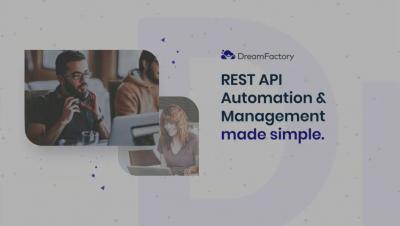Systems | Development | Analytics | API | Testing
%term
Deploying Expo React Native to Appetize
We are going to be covering how to deploy a React Native Expo app to Appetize, a platform that lets you run mobile apps in your browser.
Better Python Decorators with Wrapt
Our instrumentation uses built-in extension mechanisms where possible, such as Django’s database instrumentation. But often libraries have no such mechanisms, so we resort to wrapping third party libraries’ functions with our own decorators. For example, we instrument jinja2 ’s Template.render() function with a decorator to measure template rendering time. We value the correctness of our instrumentation a lot so that we do not affect our users’ applications.
Bug Forensics - How to debug an app that communicates with the server
When something crashes in an app, fixing the bug is usually quite straightforward. But apps can also be blighted by bugs that don’t result in crashes, and this is where things start to get interesting. To find and fix these bugs, you will require as much information as possible and probably a combination of tools. Let me explain a process we know as ‘bug forensics’, based on a real bug that has impacted one of Bugfender’s customers.
Everything you need to know about .NET 5.0
If you’re a developer of .NET supporting enterprise apps developed in the .NET framework, you should know how the .NET 5 would impact your current enterprise app. Moving forward, there will be only one .NET to target macOS, Windows, Linux, iOS, Android, and more. Along with the release, there are new .NET APIs, language features, and runtime capabilities. The look and feel of the code and project files in .NET 5 would be the same, regardless of the type of app being created.
How to use data to change behaviors
The government's COVID-19 response is a good example of failed leadership from a data perspective. While government officials have access to a huge amount of data to help them make decisions they’ve fundamentally failed to use it to take people on a journey. There’s a huge lesson that businesses can learn from this on how to use data to change behaviors. What we’ve seen is governments responding to the outbreak at a very simplistic level.
Selenium Vs Testsigma | Which is the Best Automation Testing Tool?
As Agile methodology was introduced, the need for fast and continuous delivery of software applications increased. Fulfilling this need, automation testing within organizations increased. Various free open source and paid automation testing tools were introduced. Selenium was the first open-source automation tool introduced and organizations moved towards this tool for their test automation needs.
Drive API Adoption, Usage and Retention with Moesif Plugin for Kong
Through a new partnership with Kong featuring native integration with Moesif, API providers will now have an enhanced Kong experience—enabling API teams to monitor their APIs and stay informed of issues and behaviors impacting their customers. With user behavior analytics, Kong customers can now track the entire customer journey with Moesif from initial sign up to the first API call and empower engineering and business teams with the product insights needed to experiment and take action.
Comparison of Open Source API Analytics and Monitoring Tools
For any API-first company, implementing the right API analytics platform is critical for tracking the utilization of your APIs and to discover any performance or functional issues that may be impacting customers. There are a variety of open-source projects you can leverage to build a complete API analytics platform. Before jumping into building an API analytics solution yourself, you should first list out your requirements and use cases.
'Data On-Prem' Means SaaS Agility And On-Premise Control
Today, we’re excited to announce Data On-Prem for development teams that operate in data-sensitive environments. This new feature truly lets you have the best of both worlds, by enabling large enterprises to leverage Rookout as a SaaS offering, while also meeting the rigorous governance and control requirements that these companies often face.











